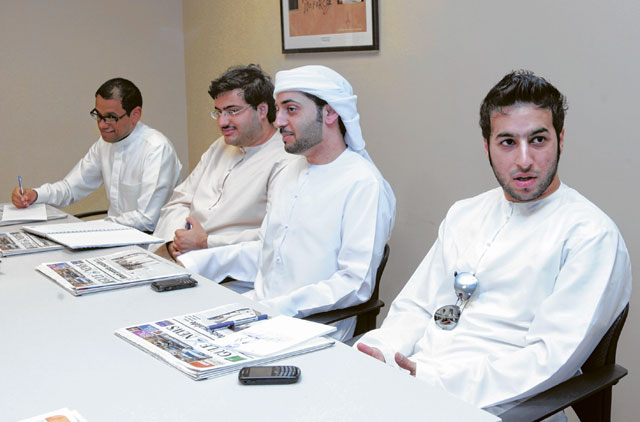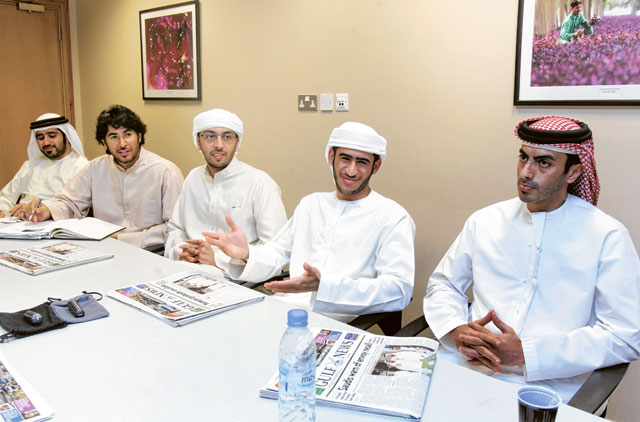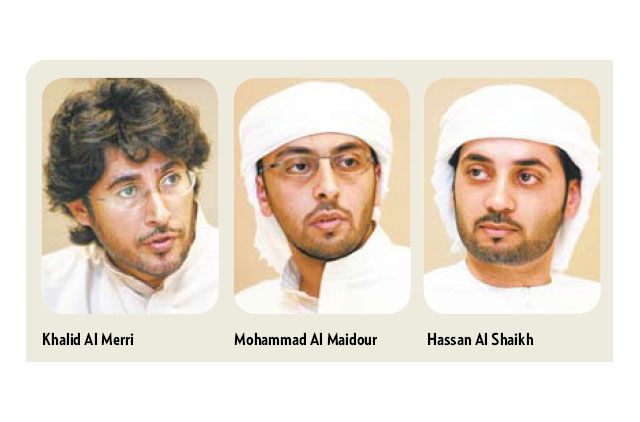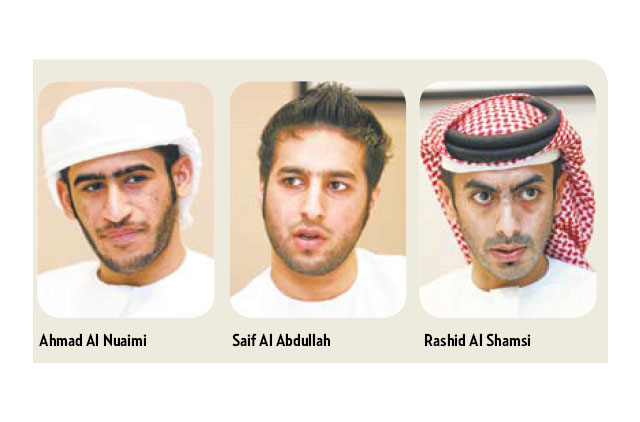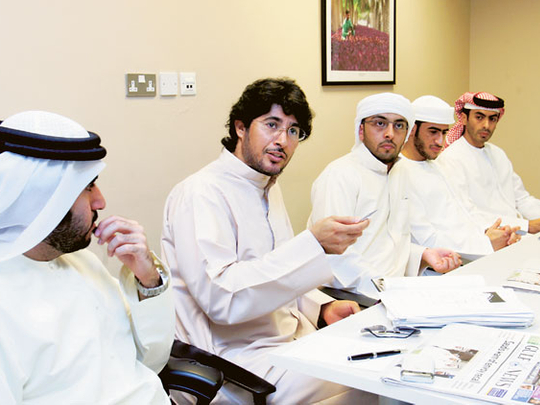
Communities were separate in the Middle East for centuries before borders were drawn and the notion of states entered political discourse. Today, with states being the basic unit in the global political setup, do these traditional affiliations conflict with national identity in the Arab world? The second debate in Gulf News’ three-part series on ‘Democracy in the Arab world’ looks at the issue of nationalism and citizenship. Also, with many countries in the region experiencing political unrest, are sectarian differences making it difficult for people to work together towards a country’s development? All these questions were posed to a group of Emirati students from Dubai Men’s College during this week’s live debate at the newspaper’s head office. Excerpts from the discussion.
The only way to solve political differences is by creating a strong national identity, as opposed to tribal or sectarian ones
Khalid Al Merri
If you look at the idea of who Arabs are, where they came from – Arabs have many tribes and their own way of connecting with each other. These roots go back centuries. I don’t think tribalism is a problem in countries like Egypt and Tunisia, their problem has been created because of the fact that the power was going to be inherited.
Mohammad Al Maidour
Also, it is about the fact that they don’t get the chance to live and work in their country. For example, Bouazizi in Tunisia was a vegetable seller. The policemen took his cart away, which is why he burnt himself and that sparked the violence. If they get the opportunity to work in their country, it will solve the problem. Even if you look at the news, you can see that the uprising is not about tribes or religion. They want a new life.
Hassan Al Shaikh
Economics is the main issue – if the economy is down, the entire country comes down, socially and financially. So you need a strong economic base for the country to rise. When it comes to building nationalism, for example many people in US and Canada are from different origins, some of them are even Arabs. So, it is not about a passport, it is about how you feel and your set of values. We come from the Arab world and we have our own values and that is what keeps us loyal to our country. The same applies to every region, every citizen loves their land. Some of them live in a bad situation, but they want to live on their land, they want to stay in touch with their roots.
Ahmad Al Nuaimi
I think education is the most important factor. If you are educated, you will know what your rights are and what your obligations are as a good citizen. You will do everything for the country.
Saif Al Abdullah
What is happening in Lebanon and Iraq is very different from what happened in Tunisia and Egypt. While in Lebanon and Iraq, the problems were because of religious differences in Tunisia and Egypt it was an economic issue.
Lack of education is the root cause of political ignorance in the Arab world
Hassan Al Shaikh
I went to Singapore last year, it is extremely developed and they have multiple ethnicities and religious communities living together. When you go there, you will find a church next to a mosque. It is a perfect example of how communities can co-exist and it is a good example of how economic development unites the country despite different religions. You take the best values from every community and everyone has equal rights and co-exists. Applying democracy is the biggest requirement for these countries now. These were the biggest demands in Tunisia and Egypt by the people.
Ahmad Al Nuaimi
Education is the main issue – many people in Tunisia and Egypt are well-educated but I think education is what makes people create a democratic country. If you look at the examples of the US and Singapore, you will see that educated people are who make a democracy.
Khalid Al Merri
We have to know what a democracy is — it is about the people. The public chooses its own leader. If the leader succeeds, it supports him. If things don’t go well, then they have to find someone else. The problem is that there are too many ministers and politicians between the leaders and the masses. They don’t let the messages reach the leaders from the public and vice versa.
Ahmad Al Nuaimi
If the country’s system has channels through which the public can question their leaders, I think people will hold their leaders accountable. Look at the US — the people are allowed to question the US President Barack Obama, which they do. This is exactly what is happening in Libya and Egypt. They just want good leadership. I think education will make people fight for their rights.
What is the solution to the regional unrest?
Rashid Al Shamsi
A developed economic situation is the solution. From what I see in the news reports, the people are hungry and they want to develop their countries, but they do not have the opportunities to do so, they don’t have the jobs. To improve their economic situation, to me, is the main purpose of this revolution.
Mohammad Al Maidour
Egypt and Tunisia and other African countries are rich, they aren’t poor. They have a lot of resources, so they can build Egypt in five years, if they focus on their own resources, on education and on putting that education to practice.
Saif Al Abdullah
I agree, the problem is economic. Just give them their rights. I know they deserve more — education, food, a job, social support and security. But I also know they have a huge population and giving a lot may be difficult for the governments.
Khalid Al Merri
In realism theory, the solution for these countries is power. What is power? It comes from education and economic strength. If they get these two factors, I don’t think there would be any unrest.
Conclusion
Tribal and sectarian differences do not pose a threat to national identity in the Arab world.
Most of the problems are economic and a decent standard of living will ensure greater political stability.
Education is the most important requirement for nations.


